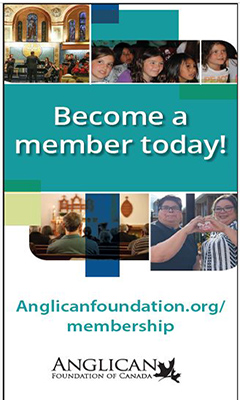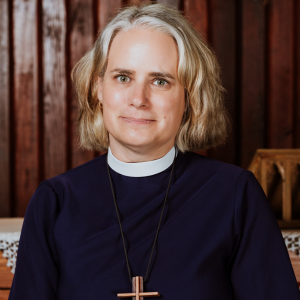November marks the end of one church year and the beginning of the next. On Nov. 23, we finish the church year celebrating Christ the King, and on Nov. 30, we begin again with the great season of Advent. We do all of this in the year of our Lord 2025, the mid-point of an extremely turbulent decade in salvation history.
As a bishop of the church in these turbulent 2020s, I am focused on increasing the adaptive capacity of the whole system, or diocese. This language around the importance of leaders focusing on increasing the adaptive capacity of the system as a whole comes from the work of Harvard professor Ronald Heifetz. He emphasizes that long-lasting transformative change never comes from the work of a leader alone, but rather from the system as a whole learning, adapting, getting manageably uncomfortable and stretching and growing into the new.
The bible is full of stories illustrating Heifetz’s point: the 40 years in the wilderness, where the people had to learn how to stop whining and complaining and start living as God’s people; Jesus telling the disciples that they had to stop arguing amongst each other about who was the greatest and instead go out two by two to share the good news; and the early church being ushered out of the fear and paralysis of the upper room and out into the world. The history of our faith has always been about God working in and through not just one of us, but all of us together.
As I look around this diocese I see so many of our parishes and people wrestling with the challenges and opportunities of our times and asking God and one another how we are being called to change and adapt. Three examples among many:
- The good people of St. Dunstan’s and Two Saints. In this past year we deconsecrated the St. Dunstan’s building, and the parishioners began worshipping with the Two Saints congregation. It has been a joy to watch how well those two congregations have become friends and companions on the journey. In October they voted unanimously to ask the diocese to amalgamate the two parishes. Every single person in each of those churches has adapted, has given up something of the old and familiar in order to embrace the new. I am grateful for their faith and witness.
- Wardens and treasurers of the Oceanside area (Lantzville, Nanoose Bay, Parksville, Port Alberni and Qualicum Beach) have been meeting with one another to discuss possibilities for shared ministry in the area.
- The North Island had a regional meeting in October to continue to talk about ways that they could support one another in ministry. This part of our diocese is often way ahead of the rest of the diocese in sharing resources, raising up lay leaders and responding to the needs of their communities. We all have a lot to learn from the faith and resiliency of the folks in the North Island.
Adapting to our ever-changing times is going to involve building relationships of trust, discerning what we need to hold on to and what we need to let go of and daring to iterate new ways of being. All of this is going to feel new and strange to the church. None of this is going to feel new and strange to the church.
Glory to God, whose power working in us can do infinitely more than we can ask or imagine. Glory to God from generation to generation, in the church and in Christ Jesus.




